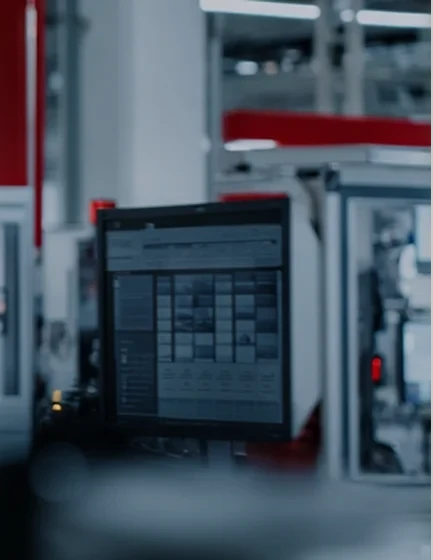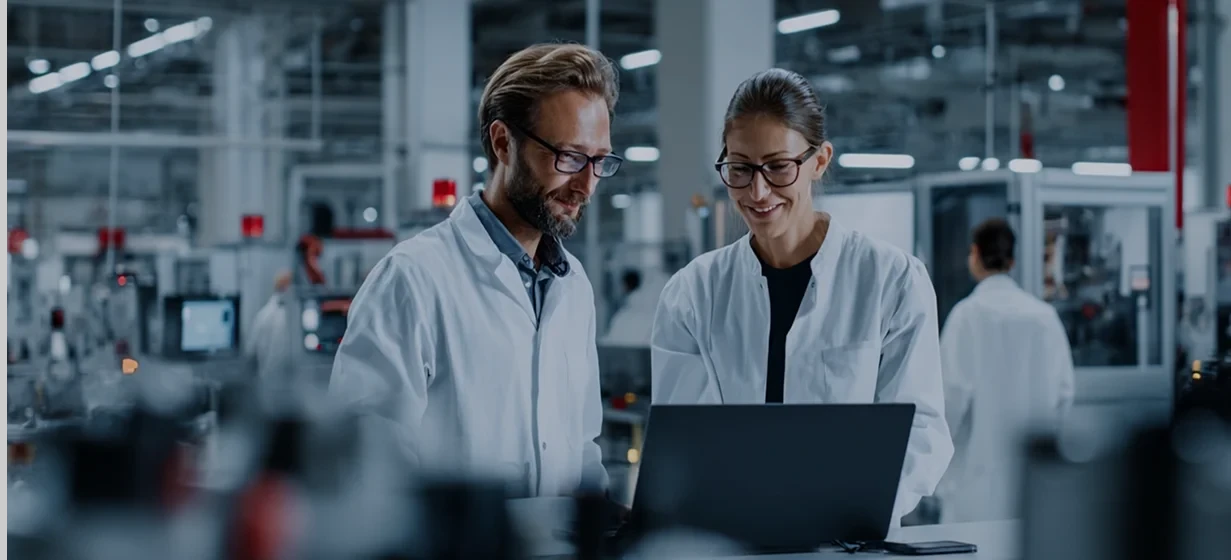

AI in Manufacturing Services
We apply AI to manufacturing data to make production faster, more predictable, and less costly.
years of AI expertise
clients worldwide
in-house employees
We apply AI to manufacturing data to make production faster, more predictable, and less costly.
years of AI expertise
clients worldwide
in-house employees
24.2%
projected annual growth of AI in manufacturing from 2019 to 2027 (Fortune Business Insights)
3x
Manufacturers using machine learning are three times more likely to improve key performance indicators (McKinsey research)
98%
of industrial companies expect digital technologies to increase operational efficiency (PwC)
Book a free consultation with Aristek. We assess your workflows, identify the right use cases, and provide a step-by-step implementation plan.
The best proof of our expertise is the AI solutions we’ve successfully delivered. Here are three examples from different industries:
We have a proven process for AI manufacturing solution implementation:
We analyze your manufacturing workflows, identify pain points, and review available data.
An NDA is signed to protect sensitive information, and together we define measurable objectives, expected ROI, and KPIs to track value.
Our team examines your data sources, assesses quality, and determines if additional collection is needed.
A feasibility study confirms the solution can be built within your budget, timeline, and operational constraints.
We create a PoC or MVP using real production data to validate the approach.
This early prototype reduces risk, refines requirements, and demonstrates measurable business value.
We build the complete solution, including data pipelines, AI models, and integration with your existing systems.
Deployment is accompanied by user training and monitoring dashboards for clear, ongoing visibility.
After launch, we track performance, fine-tune algorithms, and adapt the solution as production processes or market conditions change.
This ensures the AI remains accurate, reliable, and effective over time.
AI supports many areas of manufacturing, from predicting equipment failures and optimizing production schedules to inspecting product quality in real time. It also helps with demand forecasting, supply chain visibility, and order management, giving manufacturers faster decision-making and more reliable results.
In production, AI is applied to monitor machines, adjust workflows, and detect defects while products are being made. This improves efficiency, reduces waste, and lowers downtime. AI also enables dynamic adjustments, such as changing machine parameters on the fly, so factories keep running smoothly under different conditions.
Generative AI can be used in product design and development. It creates design variations, tests different materials, and predicts how products will perform before physical prototypes are built. This speeds up innovation, reduces errors, and shortens the time it takes to bring new products to market.


